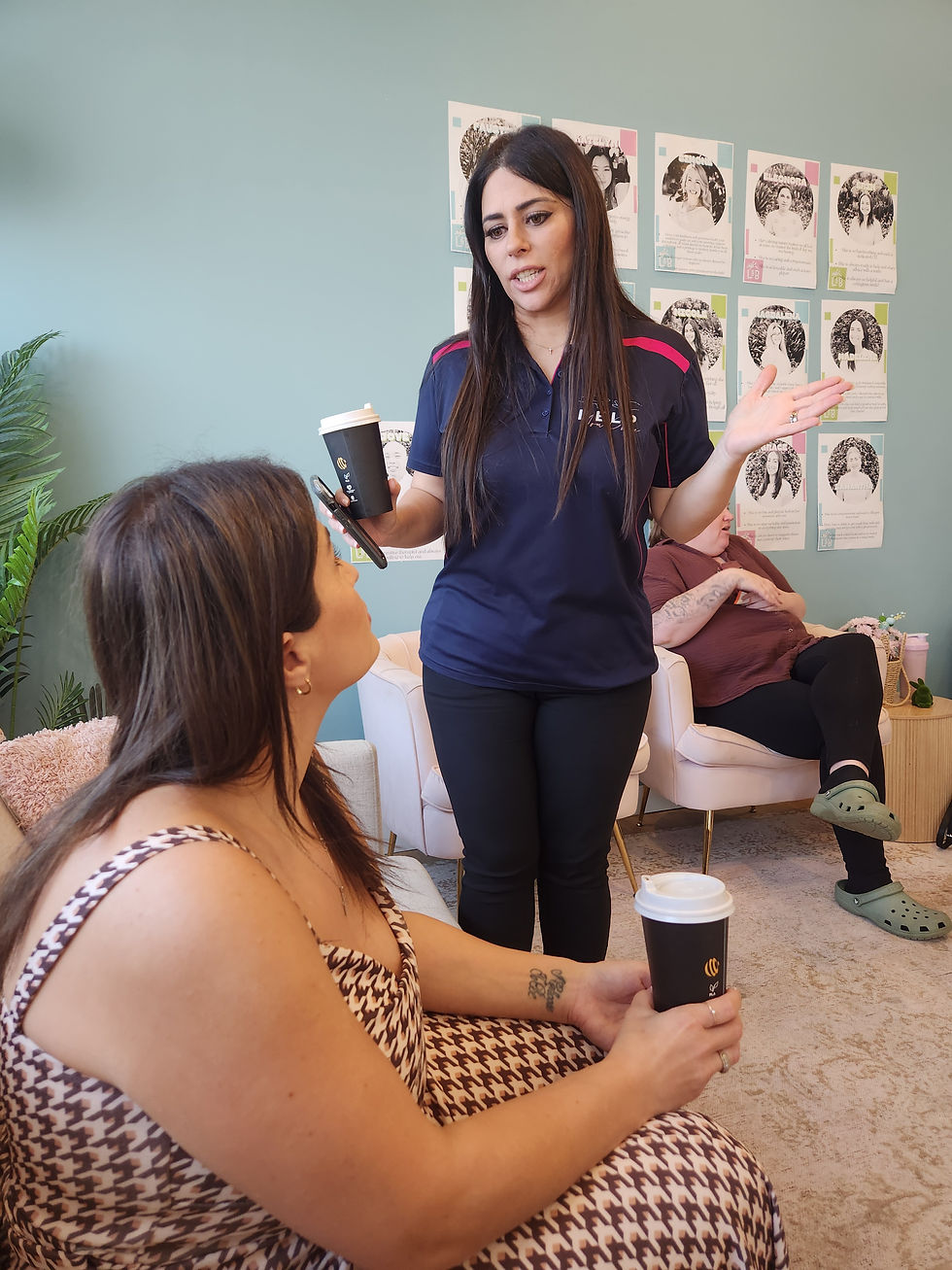Understanding Your Autistic Child's Sensory Needs: A Guide for Parents and Carers
- Help You Cope
- Oct 31, 2025
- 3 min read
Struggling to understand your autistic child's sensory needs? Learn how to identify sensory triggers, find regulation tools, and support your child through trial, patience, and connection with other autism carers.

Understanding Your Child's Sensory Needs
One of the biggest lessons I've learned on my journey as an autism mum and carer is that every autistic child is unique and has different sensory needs. One of the hardest parts of parenting a child on the autism spectrum is figuring out what helps them feel safe, calm, and regulated.
It took me a long time to understand my son's sensory processing needs and what sensory tools help him regulate. Even now, it changes as he grows. What worked last year may not work today and that's okay.
The Journey of Learning Sensory Processing in Autism
There were times I felt guilty, wishing I had "known earlier" about my child's sensory sensitivities. But the truth is, it's not our fault.
Understanding sensory needs in autism is hard, especially when your child can't always communicate what they need.
Many autistic children struggle to express:
What sensory input feels overwhelming
Which textures, sounds, or lights cause distress
What helps them feel calm and safe
When they're experiencing sensory overload
As autism parents, we often feel like we should instinctively know what our children need. But sensory processing disorder and autism sensory challenges are complex, they require time, observation, and often professional guidance to understand.
What Helped Me Understand My Child's Sensory Needs
What helped me most was support from occupational therapists and connecting with other autism carers who had walked this path before me.
Bit by bit, it became clearer what worked for my son, and I began to trust the process and my instincts more.
Key Things I Learned:
1. Sensory needs change over time What regulates your child at age 3 might not work at age 7. Growth, new environments, and developmental stages all affect sensory processing.
2. It's trial and error Sensory tools for autism aren't one-size-fits-all. Weighted blankets might help one child but overwhelm another. Noise-cancelling headphones might calm one child while compression clothing works better for another.
3. Observation is your best tool Watch when your child seems most regulated versus most dysregulated. Notice patterns around sounds, textures, movements, and environments.
4. Professional support makes a difference Occupational therapists specialising in sensory processing can identify specific needs and suggest targeted strategies.
5. Other carers' experiences are invaluable Hearing what's worked (or hasn't worked) for other autism families can fast-track your learning and save frustration.
If You're Still Learning: Give Yourself Grace
If you're still learning about your child's sensory needs, please know this: you will get there.
It takes time, patience, and trial and error. Give yourself grace along the way. Our autistic children are always teaching us, and we're always growing with them.
You're not a bad parent for not understanding immediately. You're not failing because what worked last month doesn't work now. This is the reality of parenting children with sensory processing differences, it's constantly evolving.
Common Signs Your Child May Have Sensory Needs:
Covering ears in loud environments
Avoiding certain textures in clothing or food
Seeking or avoiding physical touch
Constantly moving or seeking pressure (jumping, crashing, squeezing)
Becoming overwhelmed in busy places
Struggling with transitions or changes
Meltdowns that seem to come "out of nowhere"
If these sound familiar, your child may benefit from a sensory assessment with an occupational therapist.
You're Not Alone in This Journey
To all the autism carers reading this: you're not alone.
Keep learning, keep asking questions, and keep connecting with others who understand. Together, we can discover what helps our children thrive and shine.
The autism journey isn't about getting it perfect, it's about staying curious, staying compassionate (with yourself and your child), and staying connected to support.
Connect with Other Autism Carers Who Understand
Learning about your child's sensory needs doesn't have to be a lonely journey. Connect with experienced autism mums and carers who've navigated these challenges and can share what they've learned.
Join the Help You Cope community at www.helpyoucope.com.au to connect with like-minded carers, share experiences, and learn together.








Comments